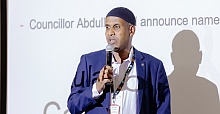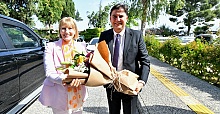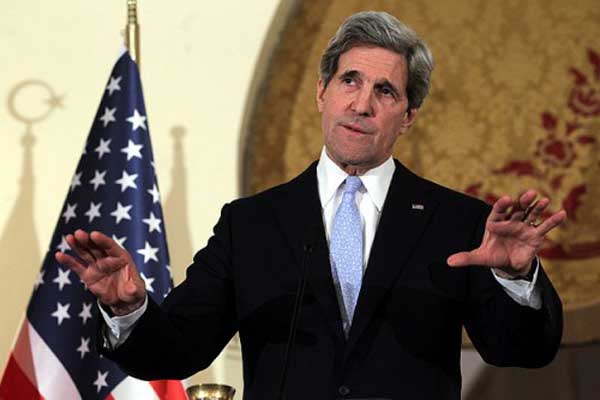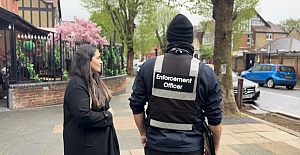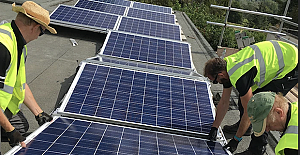U.S. Secretary of State John Kerry arrived in Geneva on Saturday to join talks on Iran's contested nuclear programme with Tehran and six world powers appearing on the verge of a breakthrough to defuse the decade-old standoff.
The Chinese, Russian, French, British and German foreign ministers - Wang Yi, Sergei Lavrov, Laurent Fabius, William Hague and Guido Westerwelle - also prepared to take part in the push to seal an interim deal under which Iran would curb its nuclear work in exchange for limited relief from sanctions.
Diplomats said a formidable sticking point in the intense negotiations, which began on Wednesday, may have been overcome with compromise language that does not explicitly recognise Iran's claim to a "right to enrich" uranium but acknowledges all countries' right to their own civilian nuclear energy. [ID:
But Russian Deputy Foreign Minister Sergei Ryabkov said Iran's demand to continue construction of a heavy-water reactor near Arak that could, when operational, yield bomb-grade plutonium remained one of the main outstanding issues.
Ryabkov said a breakthrough was closer now than at the Nov. 7-9 round of Geneva talks but, he told Russia's Itar-Tass news agency, "unfortunately I can't say that there is a certainty of reaching that breakthrough."
"It's not a done deal. There's a realistic chance but there's a lot of work to do," Germany's Westerwelle told reporters.
The powers' goal is to cap Iran's nuclear energy programme, which has a history of evading U.N. inspections and investigations, to remove any risk of Tehran of refining uranium to a level suitable for bombs rather than electricity.
"We are close to a deal but still differences over two-three issues remain," said Iranian Deputy Foreign Minister Abbar Araqchi, a senior negotiator.
A senior European diplomat had told reporters earlier that foreign ministers of the six states would come to Geneva only if there was a consummated agreement to sign.
An interim accord on confidence-building steps would be designed to start a cautious process of detente with Iran after decades of estrangement, and banish the spectre of a devastating Middle East war over its nuclear quest.
The draft deal would have Iran suspend some sensitive nuclear activities, above all medium-level enrichment, in exchange for the release of some of many billions of dollars in Iranian funds frozen in foreign bank accounts, and renewed trade in precious metals, petrochemicals and aircraft parts.
The United States might also agree to relax pressure on other countries not to buy Iranian oil. Tehran has made clear it wants a more significant dilution of the sanctions blocking its oil exports and use of the international banking system.
France's Fabius, who objected to what he felt was a one-side offer to Iran floated at the November 7-9 negotiating round, appeared guarded on arrival in Geneva early on Saturday.
"I hope we can reach a deal, but a solid deal. I am here to work on that," he said. France has consistently taken a tough line over Iran's nuclear programme, helping Paris cultivate closer ties with Tehran's adversaries in Israel and the Gulf.


 Prime Minister Keir Starmer's 2025 Easter message
Prime Minister Keir Starmer's 2025 Easter message After Nesil Caliskan a by-election will be held in Jubilee ward in Enfield
After Nesil Caliskan a by-election will be held in Jubilee ward in Enfield Publishing the analysis, Labour’s Cllr Ergin Erbil said Everybody in Enfield deserves basic rights
Publishing the analysis, Labour’s Cllr Ergin Erbil said Everybody in Enfield deserves basic rights Gaza-Israel conflict Statement from Cllr Ergin Erbil, Leader of Enfield Council
Gaza-Israel conflict Statement from Cllr Ergin Erbil, Leader of Enfield Council UK AMBASSADOR TO TURKEY VISITS FETHIYE
UK AMBASSADOR TO TURKEY VISITS FETHIYE Journalists from Europe held the Turkish Media Workshop in Skopje
Journalists from Europe held the Turkish Media Workshop in Skopje The European Union called on Turkey to uphold democratic values
The European Union called on Turkey to uphold democratic values Turkish citizens in London said Rights, Law, Justice
Turkish citizens in London said Rights, Law, Justice The 'Prince of Paris' has impressed in his first EuroLeague season
The 'Prince of Paris' has impressed in his first EuroLeague season Saran Media And Euroleague Basketball Extend Media Rights Partnership for Four More Years
Saran Media And Euroleague Basketball Extend Media Rights Partnership for Four More Years Will Rangers be Jose Mourinho’s next victim?
Will Rangers be Jose Mourinho’s next victim? Jose Mourinho's Fenerbahce face Rangers on Thursday
Jose Mourinho's Fenerbahce face Rangers on Thursday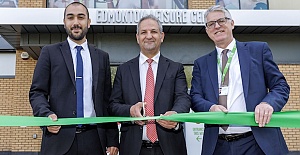 Residents welcomed back to Edmonton Leisure Centre
Residents welcomed back to Edmonton Leisure Centre Barclays has become the biggest UK lender so far to cut mortgage rates
Barclays has become the biggest UK lender so far to cut mortgage rates THE SPRING STATEMENT EXPLAINED, UK ECONOMIC OUTLOOK AND GROWTH FORECASTS
THE SPRING STATEMENT EXPLAINED, UK ECONOMIC OUTLOOK AND GROWTH FORECASTS Launch of Made in Enfield gift shop to celebrate local artists and designers
Launch of Made in Enfield gift shop to celebrate local artists and designers
